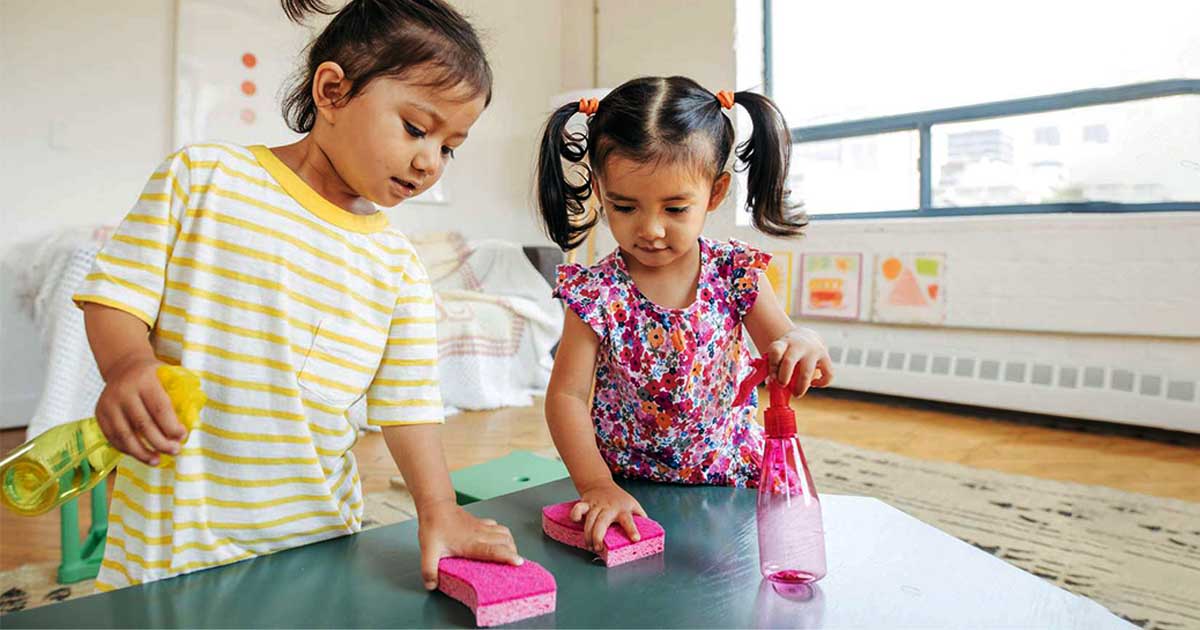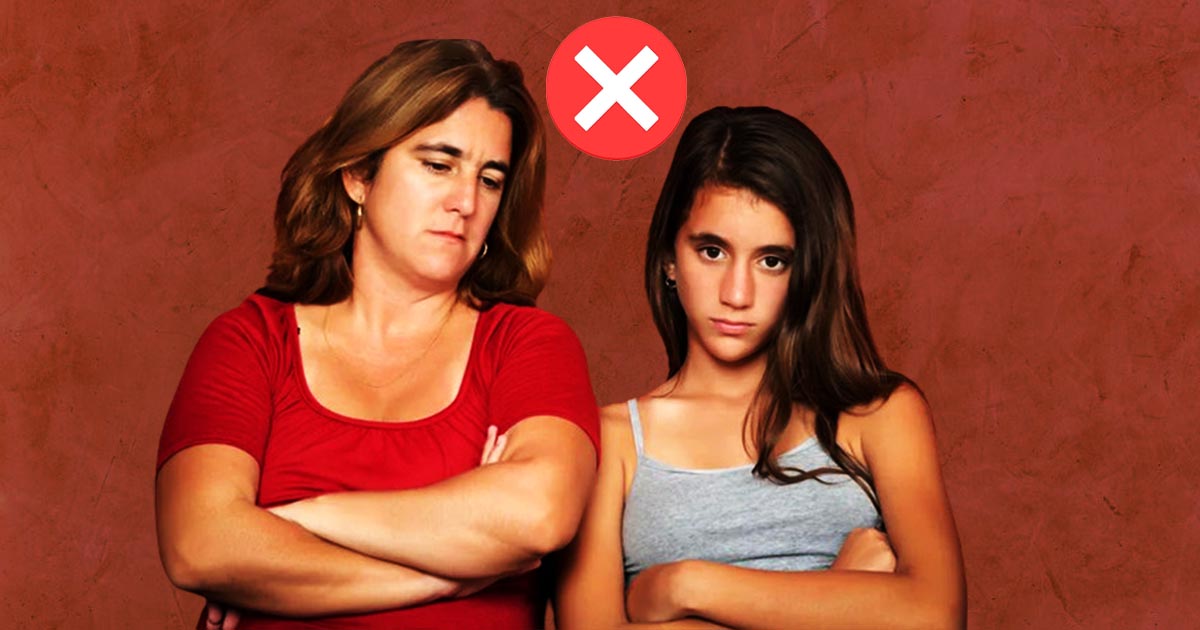In the present day, characterized by social media and glossy magazines, families are pictured as perfect. However, that ideal parental perfectionism seems unattainable. It is a mirage appearing distant in the desert of everyday existence.
The advertisements are all smiles; impeccable dress for kids, picture-perfect homes for Instagram; all these paint an unrealistic picture of parenting where perfection is not desirable but attainable.

However, underneath those perfect family portraits lies something much messier than we could ever have imagined – it’s chaotic yes but it’s also much more beautiful at that.
This article will tackle some common ideas about “the perfect family” and how working towards this image can harm children.
We’ll explore what happens when mothers and fathers are held to impossible standards that require them to be able to do everything while having everything they do counted which may be harmful to both themselves and their children.
What Is The Myth of the Perfect Family?
Always people anticipate that their families should be happy, harmonious, and successful in all things which is not true hence the myth of the perfect family.
This view of parental perfectionism is supported by cultural values, societal norms, and media portrayals where every family appears to be a perfect unit with no problems at all.

Parents must balance work, family, and personal life while raising disciplined children who excel in everything.
This parental perfectionism sets high standards for parents making them feel inadequate when they fail to meet them thereby causing guilt and stress. Moreover, it also burdens children with unattainable expectations that could have a detrimental impact on their self-image as well as overall health.
At the end of parental perfectionism, however, this tale simply glosses over the messy realities of human existence since nobody has ever been flawless.
What is The Reality Of Parenting?
Always people anticipate that their families should be happy, harmonious, and successful in all things which is not true hence the myth of the perfect family. This view is supported by cultural values, societal norms, and media portrayals where every family appears to be a perfect unit with no problems at all.
Parents must balance work, family, and personal life while raising disciplined children who excel in everything.
This story sets high standards for parents making them feel inadequate when they fail to meet them thereby causing guilt and stress. Moreover, it also burdens children with unattainable expectations that could have a detrimental impact on their self-image as well as overall health.
At the end of it all, however, this tale simply glosses over the messy realities of human existence since nobody has ever been flawless.
Effects of Parental Perfectionism on Children
Parental perfectionism can have profound effects on children, impacting many areas of their development and well-being.

Here are some possible effects of parental perfectionism on kids:
1. Stress to Succeed:
Children with perfectionist parents often face immense pressure to excel in every aspect of life. This extends to academics, extra-curricular activities, and even friendship.
They know too well that their parents expect them to get high marks; they should always win in any game they play and never make mistakes while dealing with others.
Parental perfectionism only means one thing: under such circumstances, they will forever be anxious because failure is associated with stress or fear which kills creativity among other things for them as students also taking away all fun meant for kids alone.
2. Fear of Failing:
Kids brought up in parental perfectionism environments where people demand “perfection” tend to have deep-seated fears about making mistakes themselves – since anything less than perfect is seen as unacceptable by those around them!
They grow up thinking that if something cannot be done perfectly then there’s no point trying it out at all hence becoming risk-averse persons who eventually lack enthusiasm when pursuing their dreams even if new challenges arise along the way since these are viewed negatively as threats against one’s self-esteem or identity.
3. Self-Esteem:
What happens is that perfectionistic parents’ constant criticism combined with setting unrealistic goals eat into children’s self-worth leaving behind feelings of incompetence throughout life.

No matter what external achievements are made during this period but still struggles inwardly so much more because validation sought after from outside oneself fails to meet expectations each time just like before
4. Perfectionistic Behaviors:
Children fixate on being faultless when they grow up in families where everyone is expected to be perfect; their mothers and fathers set impossibly high standards and fuss over details too much.
Therefore these kids plan everything about their lives down to the smallest detail so as not to make any mistakes or underachieve.
This perfectionist attitude extends across the board from schoolwork to friendship circles stifling spontaneity, originality, or self-expression. They aim for nothing short of flawless performance always until it becomes an excessive demand that kills natural interest in life.
5. Difficulty Coping with Mistakes:
Parents who believe in perfectionism have trouble coming to terms with failures made by their children because they view them as personal failures too.
As a result when kids fall short or trip there is nobody else there except themselves; no support or encouragement comes from their mother or father.
Kids internalize what their moms and dads say about them after making mistakes forever fearing failure above anything else thus instead of bouncing back stronger like most people would given enough time
Therefore parents must realize how detrimental perfectionism can be on children development and provide a loving caring appreciative environment for effort rather than success alone. Parents should help children embrace imperfections while building healthy self-esteem through learning from failures which is necessary for lifelong happiness and achievement
A Word From Mind Family
Parenting is a challenge. It’s confusing and filled with moments of pure happiness. This doesn’t mean that we should hold ourselves up to impossible standards or ideas about what family life should be like, though. Because if we do, then there is every chance that our children will suffer emotionally because their self-growth has been stunted.
What’s important for parents to understand is how damaging it can be when perfectionism becomes an overwhelming force in their parenting; they need to instead seek balance and compassion.
We need to teach our kids about acceptance, empathy, and bouncing back when things get tough.
If as parents we can foster these qualities within ourselves and model them for our children, then they will learn how to embrace imperfection in themselves too – but always remember that this must start at home!
The most important thing is not achieving perfection as a parent – rather, it’s about helping your child grow into the person he/she was meant to become while supporting his/her journey all the way there!
Frequently Asked Questions (FAQs)
What is the myth of the perfect family?
The myth of the perfect family is the unrealistic expectation that families should embody flawless happiness and success. It’s perpetuated by societal norms and media, placing pressure on parents to balance everything effortlessly while raising impeccably behaved children.
What is the reality of parenting?
Parenting is a multifaceted journey filled with challenges, from sleepless nights to emotional rollercoasters. It involves navigating financial responsibilities, emotional ups and downs, and the profound experience of unconditional love amidst the chaos of everyday life.
What are the effects of parental perfectionism on children?
Parental perfectionism can lead to pressure to perform, fear of failure, low self-esteem, perfectionistic behaviors, and difficulty coping with mistakes in children. These effects stem from unrealistic expectations imposed by perfectionistic parents, hindering children’s emotional well-being and development.











